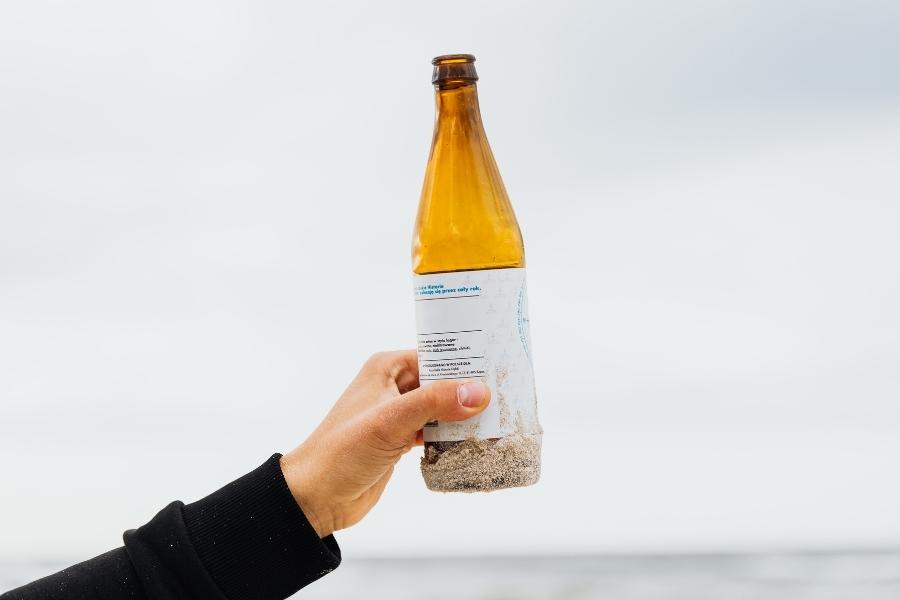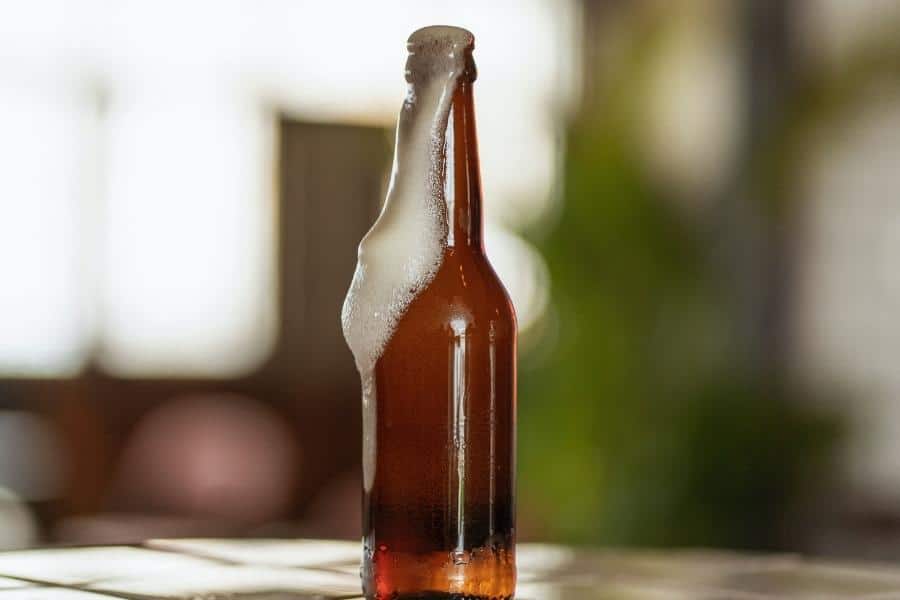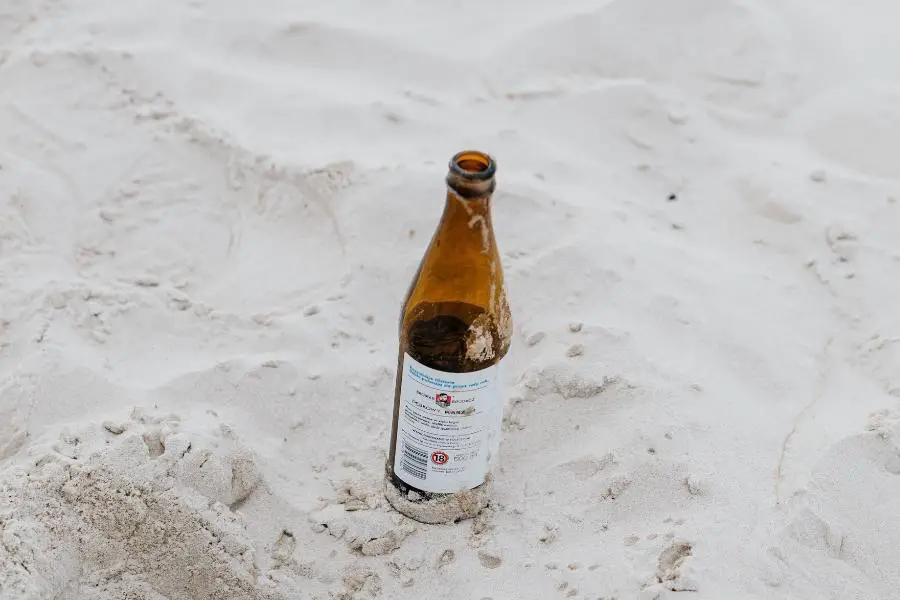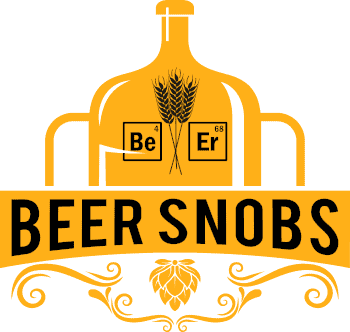If you buy something through a link in our posts, we may get a small share of the sale.
What is skunked beer? It is a question every beer enthusiast has been asking. Skunking, or lightstruck, is a common problem that affects beer and can ruin the entire drinking experience. Let’s take a closer look at what skunked beer is and what causes it.
Contents
What Is Skunked Beer?
Skunked beer is a beer that has been exposed to light and has gone bad as a result. When beer is exposed to light, it causes a chemical reaction that results in an unpleasant smell and flavor. This reaction is accelerated by Ultra Violet (UV) light.

Flavor in a beer is typically a result of the malt, hops, and yeast used in its production. Every brewer desires to have a beer that will be enjoyable for its flavor. Yes, beer lovers everywhere know that flavor is the key, and none will want to put the unappealing beer down their throats no matter what.
While not as common as it used to be, skunked beer is still out there. It’s a problem that all brewers, beer lovers, and retailers must be aware of. Therefore, stakeholders should work round the clock to combat this off-flavor so that beer lovers can enjoy a good beer without worrying about the skunky flavor.
What Causes a Skunked Beer?
The leading cause of skunked beer is the compound 3-methyl-2-butene-1-thiol, also known as MBT. When this compound comes in contact with light, it reacts with sulfur-containing amino acids in the beer to produce a skunky smell. This smell is often described as being similar to that of a skunk.
Beer contains hops, yeast, and malt. The main component that contributes to skunked beer is the hops. The MBT is formed when the light hits the hops and reacts with the sulfur content to produce the skunky smell.
Unlike distilled spirit products like rum, beers are brewed using natural products, and controlling them is a bit challenging. However, brewers are becoming more and more aware of the problem and are working tirelessly to find ways to prevent skunked beer.
How to Tell if Your Beer Is Skunked?
The following are some common signs that your beer may be skunked:
- The beer has a strong, unpleasant odor.
- The beer tastes off or strange.
- The beer is a different color than it should be.
- The beer has a slimy texture.
Beer lovers will quickly tell if their beer has gone bad. However, it can be challenging to determine if a beer has gone bad for those who are less familiar with the taste and smell of skunked beer.
It is good to discard the beer immediately after you notice any of the above symptoms. This will help ensure that you do not end up drinking a beer that tastes and smells terrible. I need fresh and delicious beer in my life that I can enjoy without any worries.
What Are the Myths About Skunked Beer?
Society has a few myths about skunky beer that just won’t die. Let’s put these myths to rest and figure out what skunked beer actually is.

Fluctuations in Temperature Causes Skunked Beer
One popular myth is that fluctuations in temperature cause skunked beer. This isn’t true. As mentioned, I know that Skunking results from a chemical reaction that takes place when the beer is exposed to light.
A cold beer will indeed taste different from a warm beer; however, this has nothing to do with skunking. A warm beer is not a skunked beer. Remember, sunkiness is not caused by heat rather by light.
The Skunked Beer Might Have Been Left in the Light for Long
Skunking occurs when a chemical reaction happens between the light and the beer. This reaction can happen in seconds, minutes, or hours, depending on the type of light and the amount of beer exposed.
So, even if you left your beer in the light for a long time, it’s not a must that it will get skunked. In fact, if you leave a six-pack of light beer out in the sun all day, not all of the beers will likely be skunked.
The Skunked Beer Might Have Been Opened Before
Some people believe that if you open a beer and don’t drink it all, the rest of the beer will get skunked. This isn’t true either.
Once a beer is open, the clock starts ticking on how long it will stay fresh. However, as long as you close the bottle or can after each drink, the beer will stay fresh for a few days. Even if the beer has been skunked, it won’t get worse.
The Skunked Beer Was Probably Past its Expiration Date
This is another myth that just isn’t true. Expiration dates are put on beers for marketing purposes, not because they indicate when the beer will go bad.
Brewers can control the expiration date by determining how much light and oxygen the beer is exposed to. So, even if a beer has passed its expiration date, it may not be skunked.
How Can You Prevent Your Beer From Getting Skunked?
No beer lover will want to experience the taste of skunked beer. The brewer’s or the retailer’s responsibility is to ensure that the beer does not get skunked so that the customers can enjoy the drink.

The following are the steps to preventing your beer from getting skunked:
- Store the beer in a cool, dark place– Storing your beer in a dark place, like a refrigerator, will help prevent it from direct light that can cause the beer to get skunked.
- Ensure that the bottles or cans are tightly sealed– If there are any leaks in the bottles or cans, it will allow the light to get in and skunk the beer. Remember that skunking takes place within minutes. Any slight hole in the bottle will allow light in the beer and ruin the taste.
- Avoid opening the beer unnecessarily– The more you open the bottle or can, the more chances for the beer to get skunked. If you have to open it, do it as quickly as possible and keep the lid closed afterward.
- Drink the beer within a reasonable time frame– The older the beer gets, the more it is susceptible to skulking. Therefore, ensure that you drink the beer as soon as possible.
- Packaging also matters- Package your beer in brown bottles or green if you want to keep it from getting skunked. Clear or bottles let in more UV light and can skunk your beer within a second.
- Cover the fluorescent tube with a protective sheath- The tubes in the refrigerators should be covered with a protective sheath if you want to store your beer in the refrigerator. This will prevent the light from reaching the beer and skunking it.
Frequently Asked Questions
Is Skunked Beer Safe to Drink?
The simple answer is yes. Though the beer has a bad smell, it is not toxic. You can still drink it because the bad beer will not make you sick. The only problem is that it will not have the same taste as it did before.
How Do You Know if Beer is Skunked?
The easiest way to know if your beer has been skunked is by the smell. If it produces a bad odor, then it has gone bad, and you may not enjoy it as you did before.
Can I Skunk Myself Drinking Beer?
No, you cannot skunk yourself drinking beer. Skunking takes place when the UV light hits the beer and causes the compounds to change. You cannot produce these compounds by simply drinking the beer.
Can I Store My Opened Beers in the Fridge?
Yes, you can store your opened beers in the fridge. However, it is important to remember that the more you open the bottle, the more chances for it to get skunked. So, if you can drink it as soon as possible.
Conclusion
Beer is a drink that most people enjoy and want to be able to have all the time. However, if it gets skunked, it can ruin the entire experience. The steps mentioned above will help you prevent your beer from getting skunked and ensure that you can enjoy drinking it without any problems.

